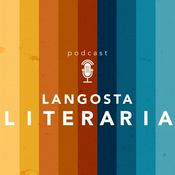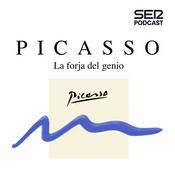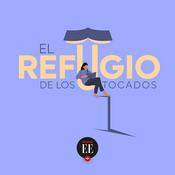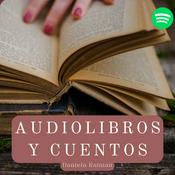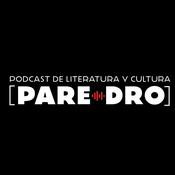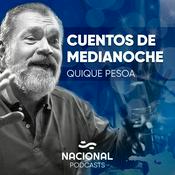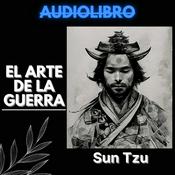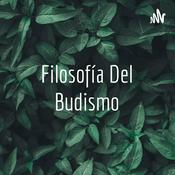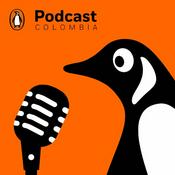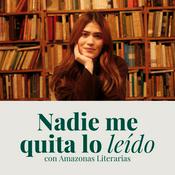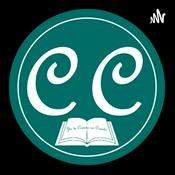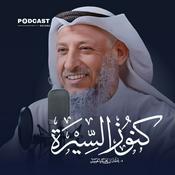96 episodios
- Dragon lore is everywhere in global mythology — no matter what continent you live on, the land you inhabit holds dragon story, and quite possibly was shaped by dragons, or has sleeping dragons in it. Such dragons have captured human imagination across hundreds of cultures and thousands of years. But the dragon is much more than a category of fantastical beast. In many traditions the world-dragon, or world-serpent, is creator, land-shaper, present in the water cycle and in weather systems and in the vast temporal cycles of the cosmos itself. More deeply, the dragon is related to kinetic power — to all that moves in spirals. So the coils of the dragon draw us in to a deep discussion of the fundamental energetic power of a cosmos whose basic movements are serpentine — coiling and releasing, gathering and dispersing, shedding and regenerating — one sinuous energy that is also multifaceted. This power is paradoxical — it creates and destroys, it births and it devours. Like the world itself, it is beautiful and it is terrifying. So this power is met in vastly different ways — with awe and reverence, and with fear and suspicion. How a culture views dragons says a lot about how they view... the world. For the dragon is the primal power of creation, and to explore dragon story is to explore how human beings have interacted with the world and its powers, its cycles and convolutions, across cultures and generations. Discussions on the world-dragon have deep relevance at a time when socio-historical power patterns are repeating, and forgotten monsters waking, and old power structures crumbling and new ones rising. At stake are questions of how we as human beings treat vast, monstrous, beautiful, paradoxical, primal powers. Featuring interviews with Nyoongar Elder Noel Nannup and Shipibo Professor Eli Sanchez Pakan Meni and original music from Victor Sakshin, Jeunae Elita, Travis Puntarelli, Charlotte Malin Collins and Marya Stark, this episode asks us to stare deep into the eyes of the flashing, feathered, scaled, fractal power at the heart of creation itself. Enter.... THE DRAGON.
Support the show - There is a weight to modern existence — perhaps you've felt it. In a world in which social and environmental crises only seem to be deepening and our familial, communal and spiritual support systems are steadily crumbling, individuals are buckling under the weight. This weight is not simply metaphorical. When the web of relationships that traditionally hold human culture together is fractured, then sociocultural, ecological, and even cosmic burdens are funneled to individuals to carry. We often try to tackle these burdens on our own — but they are far too big for one person to bear. Traditional cultures, by contrast, tend to be constructed around networks of support — not only in their sociocultural and spiritual systems, but in their understanding of a cosmological and ecological mandala of animate forces, gods and goddesses and spirit helpers that literally bear weight. So animate traditions invoke various weight bearers, from turtles to elephants to the great mother goddess herself — who is known as the 'support' of everything that is. Such figures invite us into a deeper vision of support that is not generated or borne by us alone and that requires that we rethink the human role in the web of life. In such relational visions, people are not gods. They have responsibilities to the web of life, but they are not responsible for bearing everything. The tendency of the modern individualist mind to put itself at the center of the cosmos and try to bear universal burdens on its own has roots that go back to the creation story that lives at the heart of western history, a story that imbues individual beings with the greatest burden of all — the burden of salvation. If we look closely this unconscious burden is still at play everywhere, across the social and political spectrum, in wellness narratives and psychotherapeutic narratives, and even in the stories we tell about how it's our imperative to 'save the world.' Perhaps it's time to unpack this deeply rooted burden and regrow it as something else. Featuring a beautiful telling of the story of Sky Woman by Mohawk Chief Beverly Cook, and original music from Beya, Balladir, Olivia the Bard, Hummbbugggg, Victor Sakshin and Marya Stark, This episode dives deep into the roots of the cosmic burdens that individuals in modern culture bear, and explores what it means to redistribute the burden as we find cosmic, ecological, and communal support.
Support the show - In times of rising frustration over the state of nations, times of personal, ecological, societal, and planetary impasse, when cycles of senseless suffering seemingly repeat themselves over and over, and all the global upheaval still isn't bringing about change... in times when stuck energies need to move and forces that have been restrained for generations long to break free, the myths offer visions of roarers, bellowers, trumpeters, and conch-blasters. These movers and shakers do more than release pent up energy. They awaken, they transform, and they announce the transition from one world to the next. So the howling storm gods of the Vedas "move the immovable" and the Goddess herself trembles the worlds with her cosmic roaring laughter and ushers in a new age. But the roar of the goddess is not just the roar of speaking truth to external powers — it is also an internal reckoning, a moment of reconciliation that takes place within us — a recognition of all those places in us that have gone dormant and need waking and all those old patterns that need to be shaken free. As bodies try to somatically process and metabolize the times we are living in, sometimes we need a good mother roar.... and we can learn much from traditions that harness the power of uttered sound to invoke help, to guard against intrusion, to dispel negative forces, and to carry us into states of deeper connectivity. Ready yourself for roars and bellows, trumpets of judgement, announcing angels, and a deep dive into the Norse Ragnarok myth with Rune Rasmussen of the Nordic animism channel. Because sometimes you gotta go full apocalyptic to meet the energy of the times. Featuring music from (and an interview with) Sakha songstress Snow Raven, songs, yelps, bellows, and shrieks from Marya Stark and Travis Puntarelli, appropriately doomy guitar from Sunny Reinhardt, and angelic calls from Jeunae Elita, this episode is designed to MOVE STUCK ENERGY, and then ultimately to channel it in creative and life-affirming ways. Listen loud and shake it free.
Support the show - In times of rising frustration over the state of nations, times of personal, ecological, societal, and planetary impasse, when cycles of senseless suffering seemingly repeat themselves over and over, and all the global upheaval still isn't bringing about change... in times when stuck energies need to move and forces that have been restrained for generations long to break free, the myths offer visions of roarers, bellowers, trumpeters, and conch-blasters. These movers and shakers do more than release pent up energy. They awaken, they transform, and they announce the transition from one world to the next. So the howling storm gods of the Vedas "move the immovable" and the Goddess herself trembles the worlds with her cosmic roaring laughter and ushers in a new age. But the roar of the goddess is not just the roar of speaking truth to external powers — it is also an internal reckoning, a moment of reconciliation that takes place within us — a recognition of all those places in us that have gone dormant and need waking and all those old patterns that need to be shaken free. As bodies try to somatically process and metabolize the times we are living in, sometimes we need a good mother roar.... and we can learn much from traditions that harness the power of uttered sound to invoke help, to guard against intrusion, to dispel negative forces, and to carry us into states of deeper connectivity. Ready yourself for roars and bellows, trumpets of judgement, announcing angels, and a deep dive into the Norse Ragnarok myth with Rune Rasmussen of the Nordic animism channel. Because sometimes you gotta go full apocalyptic to meet the energy of the times. Featuring music from (and an interview with) Sakha songstress Snow Raven, songs, yelps, bellows, and shrieks from Marya Stark and Travis Puntarelli, appropriately doomy guitar from Sunny Reinhardt, and angelic calls from Jeunae Elita, this episode is designed to MOVE STUCK ENERGY, and then ultimately to channel it in creative and life-affirming ways. Listen loud and shake it free.
Support the show - POWER is on the mind these days, as the world grapples with shifting global power dynamics, old powers crumbling, new ones rising, and archaic power paradigms resurfacing… Yes, issues of power run rampant and discussions on power are front and center. But like everything else in modern discourse, the discussion on power has been decontextualized. Power is seen as an abstract bodiless force that governs from above, or an arbitrary human construct that is either relentlessly pursued or seen as 'bad' and flattened entirely. Traditional animate systems hold a very different vision of power, in which power is a tangible presence, a living breathing force inherent to the structure of nature itself. Within this vision there is the recognition of a greater power that operates in cycles and spirals of creation and destruction, and to which all temporal powers are beholden. When the existence of this power is acknowledged, then human beings can architect their ritual and social systems to be in alignment and harmony with it. In the absence of recognition of this power, human beings settle for the crudest, most obvious vision of power — the power to seize and force and control. These 'obvious' powers have come to dominate our vision of power. Yet the world is shaped by a multitude of powers, some silent and invisible. Every small power in the mandala of powers has its role to play in the overall web of power, and perhaps a complete vision of power means recognizing the power of the less obvious things, and cultivating those powers that slowly shift and repattern the more obvious powers. This means recognizing first and foremost that power is real and tangible, and that the structures and harmonic architecture of nature itself reveals much about what it means to construct systems that can honor it, call it, receive it, hold it, and pass it on. Featuring contributions from Nyoongar writer, storyteller and researcher Jack Mitchell, Hawaiian cultural practitioner Kanani Aton, and Living Sanskrit's Shivani Hawkins, with music by Althaea, Victor Sakshin, Marya Stark, and Travis Puntarelli. Let's take a deep dive into... the ***POWER***
Support the show
Más podcasts de Arte
Podcasts a la moda de Arte
Acerca de The Emerald
The Emerald explores the human experience through a vibrant lens of myth, story, and imagination. Brought to life through the wise, wild, and humorous vision of Joshua Michael Schrei — a teacher and lifelong student of the cosmologies and mythologies of the world — the podcast draws from a deep well of poetry, lore, and mythos to challenge conventional narratives on politics and public discourse, meditation and mindfulness, art, science, literature, and more. At the heart of the podcast is the premise that the imaginative, poetic, animate heart of human experience — elucidated by so many cultures over so many thousands of years — is missing in modern discourse and is urgently needed at a time when humanity is facing unprecedented problems. The Emerald advocates for an imaginative vision of human life and human discourse as it questions deep underlying assumptions about societal progress.
Sitio web del podcastEscucha The Emerald, Bibliotequeando y muchos más podcasts de todo el mundo con la aplicación de radio.net
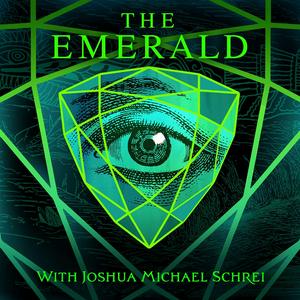
Descarga la app gratuita: radio.net
- Añadir radios y podcasts a favoritos
- Transmisión por Wi-Fi y Bluetooth
- Carplay & Android Auto compatible
- Muchas otras funciones de la app
Descarga la app gratuita: radio.net
- Añadir radios y podcasts a favoritos
- Transmisión por Wi-Fi y Bluetooth
- Carplay & Android Auto compatible
- Muchas otras funciones de la app


The Emerald
Escanea el código,
Descarga la app,
Escucha.
Descarga la app,
Escucha.


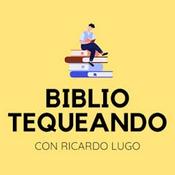


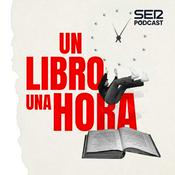
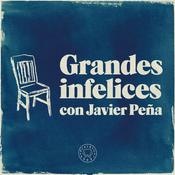

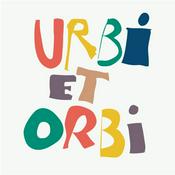
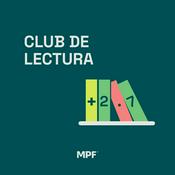



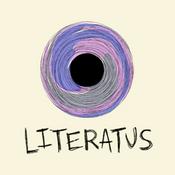
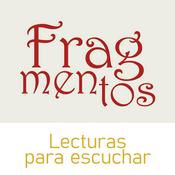

![Podcast Cómo ganar amigos e influir sobre las personas [Spotify Edition]](https://co.radio.net/podcast-images/175/como-ganar-amigos-e-influir-sobre-las-personas-spotify.jpeg?version=bc43cd7b76f606594080059877e3f74e0d72a279)

